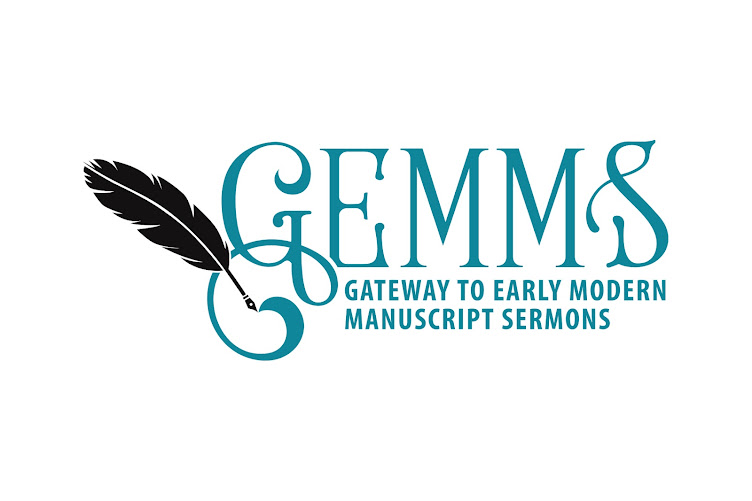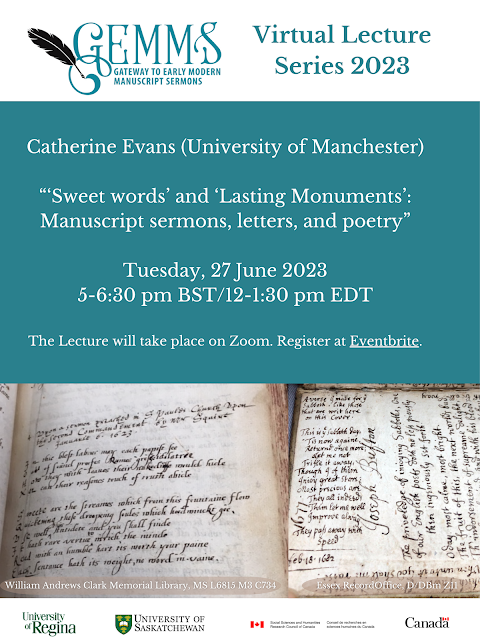There is only 4 days left before the next GEMMS virtual lecture by Catherine Evans, ""'Sweete Words' and 'Lasting Monuments': Manuscript sermons, letters, and poetry" on Tuesday, June 27!
To join us live on Zoom or to the receive a link to the recording, register at https://www.eventbrite.ca/e/catherine-evans-manuscript-sermons-letters-and-poetry-tickets-546390688257
We hope you can join us!
Lecture abstract:
“A verse may find him whom a sermon flies”, as George Herbert writes in The Church Porch. Herbert may have been pre-emptively batting away criticism for taking time away from composing and delivering sermons to dedicate himself to the poetic arts, suggesting that for some poetry would be more effective as a spur to devotion. This talk will consider the relationship between verse and sermon from the perspective of the lay reader, examining manuscript poetry written in response to hearing or reading sermons. These include poems by a wife about her clergyman husband’s preaching, verses by an Essex cloth worker on his own sermon attendance, and a reworking of a funeral sermon in rhyme. If, as Arnold Hunt has discussed, we need to consider how sermons taught their hearers to listen to rhetoric and recall the word of the Bible, how did they also move them to create new texts and transform them into poetry?
In A Call to Come to Christ, a poem found in a religious manuscript miscellany once belonging to Lady Betty Bruce Boswell, Elizabeth Melville rewrites Christopher Marlowe’s The Passionate Shepherd to His Love: “Come live [with me] and be my love/ And all these pleasures thou shalt prove… O loath this life and live with me/ This life is but a blast of breath”. She transforms the words of “lawless lust” and “love profane” into “that living well/ Which shall thy dwining [thirsting] drowth expell”. Research for GEMMS has demonstrated that manuscript sermons often sit beside all sorts of “profane” material: personal account books, recipes, and extracts of amatory verse to name a few. By exploring the poetry that sits alongside sermons, and in many cases was inspired by them, this talk will situate sermons within the broader literary landscape of the time.

